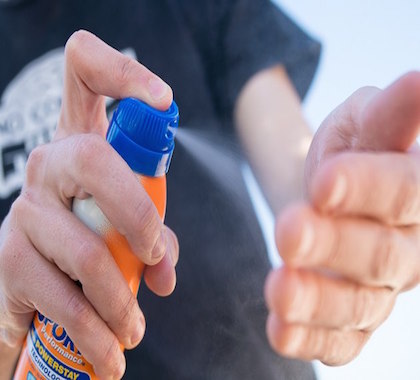With millions of Americans buying sunscreen as summer arrives, new products with innovative cancer-blocking ingredients that could help prevent harmful UV exposure remain stuck in the FDA approval process.
In 2002, the U.S. Food and Drug Administration (FDA) attempted to address the problem of sunscreens in the United States lacking cancer-blocking ingredients already approved overseas by adopting the Time and Extent Application process to speed up review of those ingredients. In 2014, Congress passed the Sunscreen Innovation Act, intended to speed up the approval process by giving the FDA a 180-day deadline for making a decision on potential sunscreen ingredients. Despite these efforts, the FDA has not approved any new sunscreen ingredients since 1999.
Delayed Approval, Denying Access
Edward Hudgins, research director for The Heartland Institute, which publishes Health Care News, says the FDA should expedite consideration of products that have already been approved overseas. By delaying approval, FDA is denying people access to products that could help prevent skin cancer, Hudgins says.
“In many other countries, certain kinds of sunscreens have been approved and available for years,” Hudgins said. “And apparently sunbathers are not dropping dead on the French Riviera.
“Skin cancer is a serious problem in this country,” Hudgins said. “It usually comes from exposure to the sun. If there are more efficient ways of protecting against it with more efficient products, they should be made available as soon as possible. The fact that there’s no penalty for the FDA sitting on a product for years, subjecting it to one test after another when it has already been approved for use in other countries, is a problem.”
Drug or Cosmetic?
Dr. Robert Graboyes, a senior research fellow and health care scholar at the Mercatus Center at George Mason University, favors the European Union (EU) system for regulating sunscreen.
“The EU has a narrower definition of what constitutes a drug versus a cosmetic,” Graboyes said. “I certainly have read enough and heard enough about this issue to know that the American Cancer Society and others view us as having a problem when it comes to sunscreen, and it’s really just a definitional problem. We happen to define sunscreen as a drug, when many other countries—and some very sunny countries—don’t.
“I’m not a dermatologist, but considering shifting the definition of sunscreen from ‘drug’ to ‘cosmetic’ is one thing that could be looked at,” Graboyes said.
Calls for FDA Overhaul
Graboyes says there’s no quick fix for the problem because the FDA has a monopoly on the approval process.
“You either get the FDA to approve it, or there’s nobody to approve it,” Graboyes said. “The FDA has strong incentives to go slow, because the penalties all come from issuance of a drug too early rather than from a lack of issuance. If the U.S. continues to define sunscreen as a nonprescription drug, I don’t know that there are any easy fixes here.
“Obviously, Congress tried a fix with the Sunscreen Innovation Act, but it didn’t work very well because the issuance [risk still] gives [the FDA] the motive to say ‘no’ to everything that comes down the pipe.” Graboyes said.
Invisible Effects
Hudgins says FDA delay can prevent manufacturers from introducing new ingredients, leaving people to die unnecessarily from skin cancer.
“At a certain point the manufacturers will simply say it’s not worth it,” Hudgins said. “Just as you don’t see all the people who get skin cancer who might not get it if they had access to these products, you also don’t see all the products that might be out there if manufacturers hadn’t backed off.”




